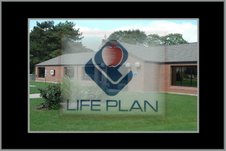 October 20-26, 2008 is National Drug-Free Work Week, and all members of the LifePlan EAP are encouraged to participate. The purpose of Drug-Free Work Week is to highlight that being drug free is key to workplace safety and health and to encourage workers with alcohol and drug problems to seek help.
October 20-26, 2008 is National Drug-Free Work Week, and all members of the LifePlan EAP are encouraged to participate. The purpose of Drug-Free Work Week is to highlight that being drug free is key to workplace safety and health and to encourage workers with alcohol and drug problems to seek help.Drug-Free Work Week is sponsored by the U.S. Department of Labor in coordination with members of its Drug-Free Workplace Alliance. This cooperative program, which represents both employer/contractor associations and labor unions, aims to improve safety and health through drug-free workplace programs. It focuses on the construction industry because research indicates that it has higher than average rates of worker alcohol and drug abuse—a serious concern given that it also tops the list of industries with the highest rates of workplace accidents and injuries. But because drug-free workplace programs benefit all workplaces, employers and employees in all industries, not just construction, are encouraged to take part in Drug-Free Work Week.
For specific ideas about how members can support Drug-Free Work Week, visit the Working Partners for an Alcohol- and Drug-Free Workplace Web site at www.dol.gov/workingpartners and click on “Drug-Free Work Week.” Suggestions range from simple to comprehensive, but all help promote safer, healthier workplaces and are wise business practices that can be implemented at any time of the year.
